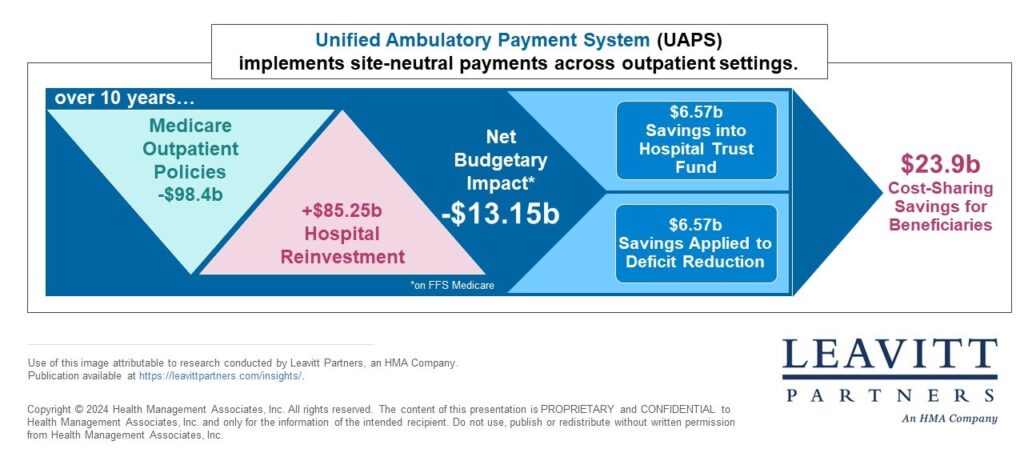Today, Leavitt Partners released a new policy framework that proposes a compromise path forward on implementing site-neutral payments. Medicare is an incredibly important program, providing more than 65 million Americans with access to robust health care benefits. As the program has grown, mounting concerns have been raised about its affordability for Medicare beneficiaries and the sustainability of its spending and financing structure. As hospitals play an irreplaceable role in their communities, providing lifesaving services to every person, regardless of their background or insurance situation, it is important to fully support them in their efforts to fulfill their mission. At the same time, however, it is critical that policymakers address payment distortions that are driving up costs to Medicare beneficiaries and the Medicare program, including the lack of site-neutral payments.
The compromise framework would lower out-of-pocket costs for Medicare beneficiaries, improve the financing of the Medicare program, and reinvest in hospitals through new targeted funding and inclusion of policy priorities. Many of these policies are long-standing advocacy priorities for hospitals, including targeted funding to rural hospitals and safety net hospitals, increasing inpatient reimbursement, permanently expanding telehealth flexibilities, and expanding Medicare-funded graduate medical education slots. Congress is considering several expensive health policy priorities in 2024 and is actively considering some form of site-neutral payments to help cover the costs. This framework provides a balanced and nuanced approach to implementing comprehensive site-neutral payment reform that benefits beneficiaries, hospitals, and the Medicare program and could help advance key health policies in 2024.
